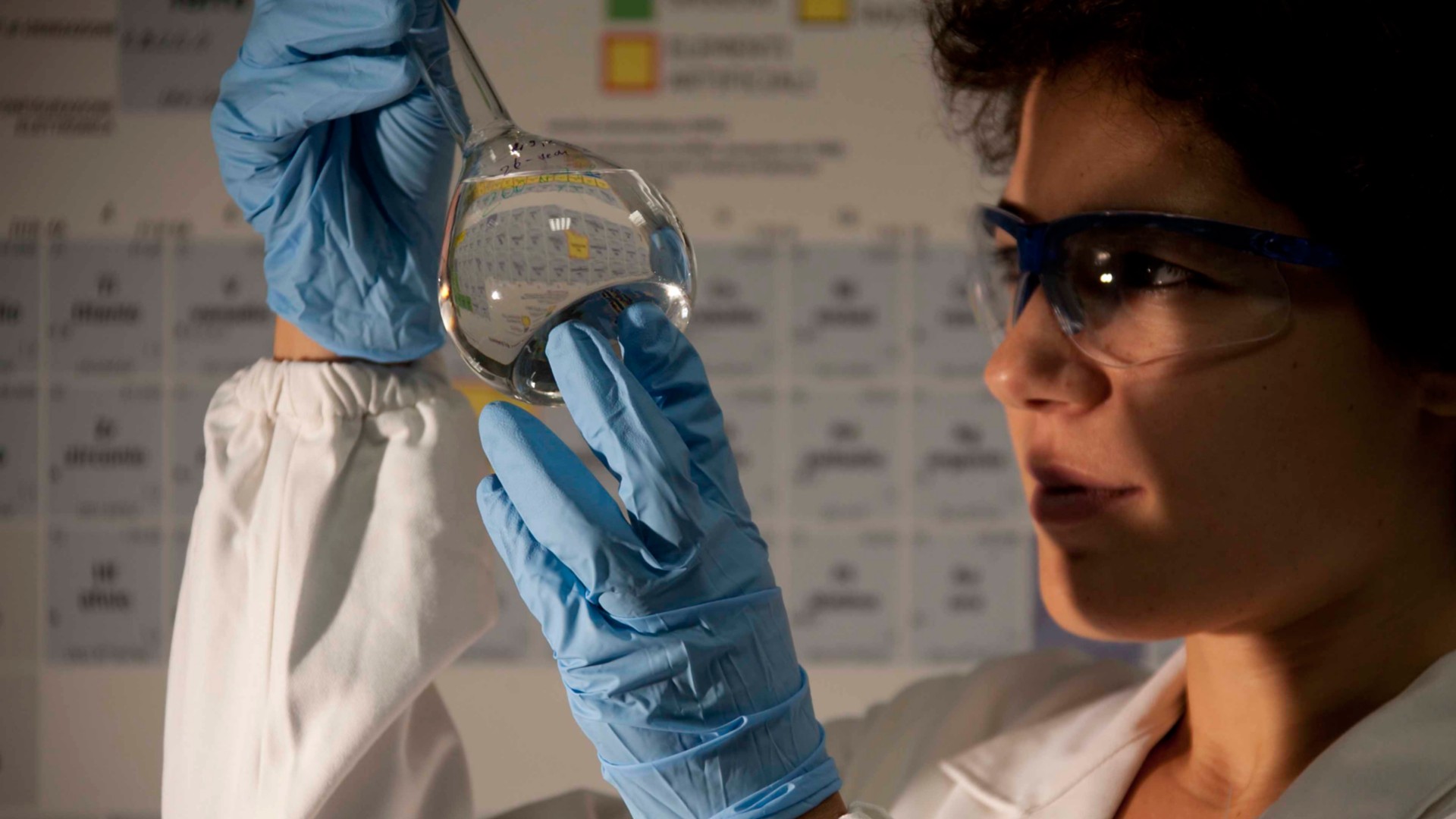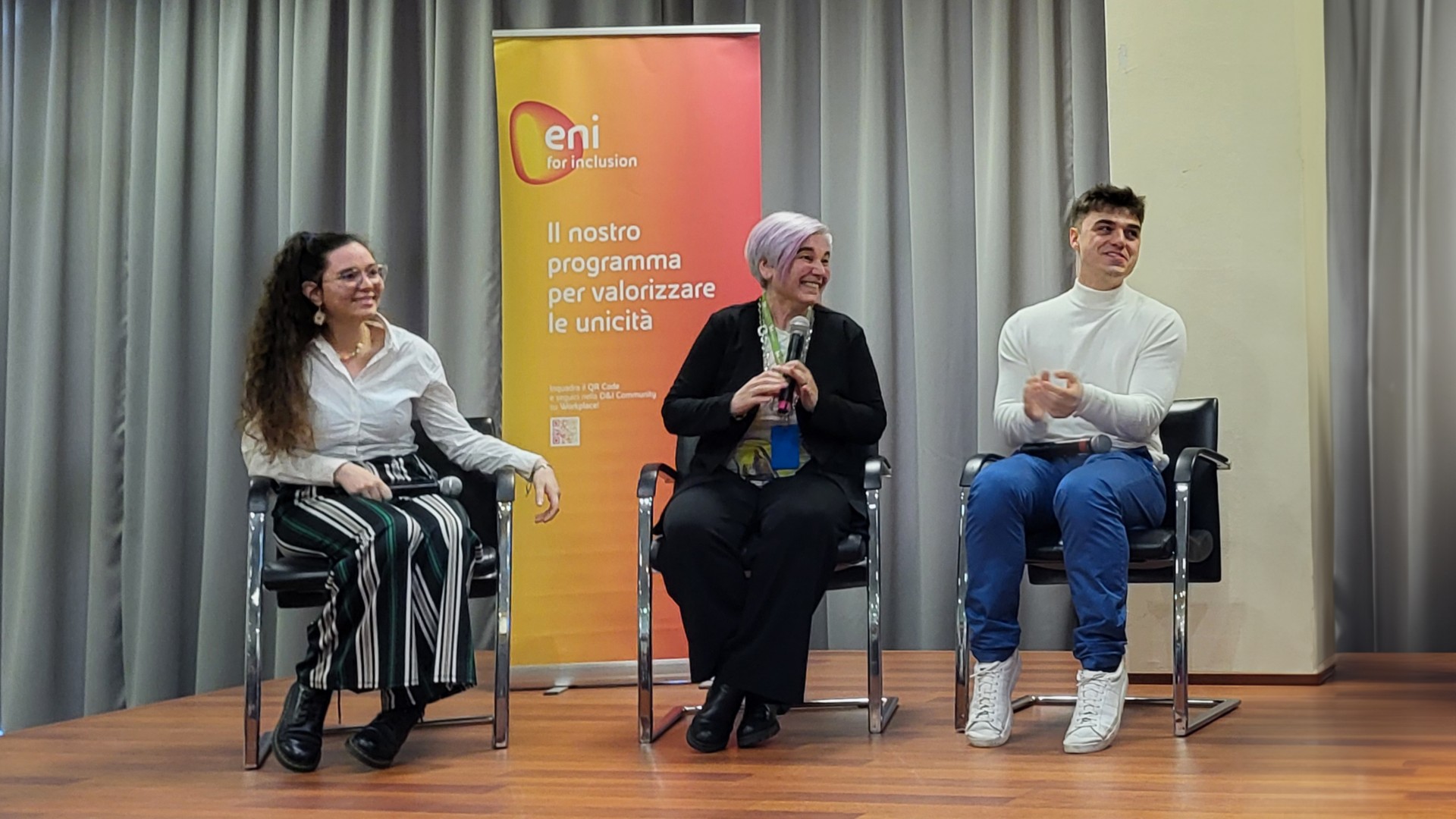- PEOPLE
- COMPANY

An inclusive environment for better work
Being an international company means dealing with different cultures, ideas and perspectives. For this reason, dialogue has always been a distinctive element of the way we do business. Eni’s Diversity & Inclusion team has developed a range of initiatives aimed at creating value. Our goal is to foster a culture of awareness and personal growth among employees. An inclusive environment allows people to work better, teamwork is essential, the human capital needed to achieve the company's objectives.
Direct involvement and storytelling from our employes are essential tools for understanding different perspectives and fostering collaboration. By overcoming biases, preconceived ideas based on hearsay, we can gain a deeper understanding of the problems we face. To give concrete form to our commitment to diversity and inclusion, we have launched the ‘Eni for Inclusion’ plan. This programme includes a series of meetings at our operational sites, both in Italy and abroad.
Last March, for example, a key milestone was reached with the involvement of the Ravenna operational site. Ravenna , is a significant city for Eni, both due to the company's historical presence there (since 1952) and its current role as a strategic hub for the energy transition and its commitment to the principles and values of diversity and inclusion. These values are not only fundamental ethical factors, but they are also critical to the success of any company's business.
Listening to bridge differences
The Ravenna side has offered us a concrete example on the topic of intergenerationality. We have seen how to overcome prejudices that can arise between people of different generations who work together and how to create synergy through mutual listening.
Silvia Romagnoli is the head of the quality control and product classification laboratory at Versalis , which for a long time was characterised by people with a certain seniority, until the arrival of Mirko Manenti and Andrea Anastasio, process analysts on duty.
“Mirko’s hiring took place within a context where a young employee had not been there for quite a long time” Silvia explains. “We had to integrate this change into an environment made up of people with extensive professional experience but who were not very inclined to change their habits. With the subsequent arrival of Andrea, we also had to deal with the fact that there was a woman working in a seven-day shift (including Saturdays, Sundays and nights) with only male analysts,” Silvia continues.
Joining a workplace dominated by senior colleagues can pose considerable challenges, especially during the initial phase. “Landing in a place populated by people my parents' age, who set certain 'limits” on daily work activities, made me feel like a fish out of water. Being very shy, the figure of Silvia, our manager, was a very useful reference point, both for trying to build a team and for having certain attitudes or avoiding others, to feel more integrated. A deeper knowledge between us helps this process,” Mirko recounts.
When Andrea arrived at the laboratory, she expected to find herself in a predominantly female environment, a myth immediately dispelled by the almost total presence of males. “In these cases, it’s important to perceive all the signals, starting from a phrase, a word, an attitude of their colleagues. I tried to grasp everything and act as cultural mediator, to bring them together halfway, trying to build a team, the only possible way to do new things, to progress together. It was difficult at first, but now we are making it work” Silvia explains.
Overcoming Bias
In this context, Silvia identified a winning strategy: placing Mirko and Andrea in two specific positions: the “joker”and the “absent substitute”, which are usually filled by analysts with a certain degree of experience. They are two positions which do not have a fixed shift and that, on the one hand, involve a certain amount to replace colleagues when they are absent, including Saturdays, Sundays and nights, on the other hand, when all colleagues are present, being in pairs, give the possibility of having them in the daily shift, to develop new projects together. “Working as a cover role with one day off has allowed me to get to know different people with strong skills within the laboratory. Having a continuous exchange of ideas with them has been an enriching opportunity for me,” says Andrea. “In the dynamics of this role, it was also very useful to get to know the behaviour of my colleagues: relating to them has given me the opportunity to smooth out attitudes of distrust and superficiality of judgement, counteracting them with my willingness and commitment,” adds Mirko.
Silvia’s proposed challenged one of the main biases on the issue of intergenerationality: young people are less dedicated to work and seek to have more free time available.
The other bias is on the technological theme: young people are more up-to-date, seniors a little less so. But even this was overcome by applying the so-called ‘reverse mentoring’.”
“Mirko and Andrea's expertise has been invaluable in helping senior colleagues become more familiar with new laboratory technologies. For example, when a device stopped and Andrea was on shift, she stubbornly managed to get it going again, overcoming the challenge and sharing the result with the team” Silvia points out with satisfaction.
Generalisation increases distances, but through daily experience, knowledge is improved and distances are shortened. The story of Silvia, Mirko and Andrea can be a strong incentive for other workplaces dealing with intergenerational dynamics.
Working at Versalis
Career opportunities in Eni's evolving chemical company

























